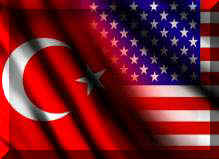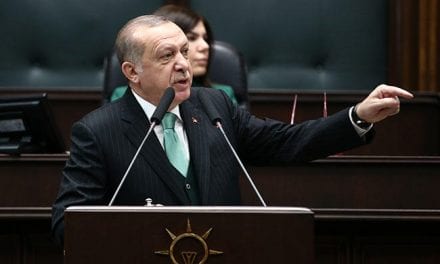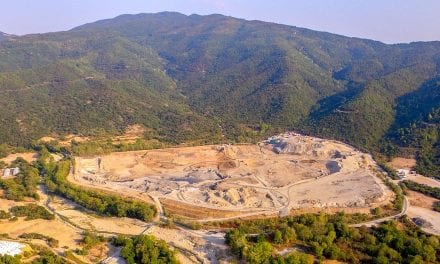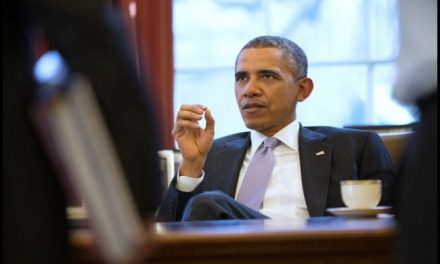by Burak Akinci-Xinhua
The conviction of a Turkish banker in New York constitutes yet a new trouble in the strained relations between Turkey and the United States, however, both NATO allies do not desire a full derailment of their decades-long partnership, said local analysts.
Turkey’s President Recep Tayyip Erdogan on Friday slammed the conviction of Mehmet Hakan Atilla, the deputy chief executive officer of the state-run Halkbank, accused of helping Iran evading sanctions.
“If this is the U.S. understanding of justice, I pity the world,” Erdogan told reporters before leaving Ankara for France, his first visit abroad of 2018, adding that bilateral accords with the U.S. are losing validity.
“There is a serious chain of plots in the United States” against Turkey, said Erdogan in an angered tone, adding that “there can be no such understanding of justice.”
ARRESTED ON BUSINESS TRIP TO U.S.
Atilla, a 47-year-old Turkish national, arrested on a business trip to New York in March, was found guilty of five counts including bank fraud.
The conviction also could very possibly spell trouble for Halkbank, implicated in a money-laundering and sanctions-evasion scheme that formed the basis of the prosecution.
Atilla now faces up to 30 years in prison.
On Thursday, Turkey’s Deputy Prime Minister Bekir Bozdag described the trial on his Twitter as a “political conspiracy of no legal value to Turkey.” Bozdag added that “Turkey is a fully sovereign and independent country,” and that “another country cannot put Turkey’s institutions on trial.”
The case hinged on the testimony of a Turkish-Iranian gold trader, Reza Zarrab, who became the prosecution’s key witness after admitting helping Iran evade sanctions. Zarrab was once close to President Erdodan’s political entourage and admitted having bribed several of his former ministers in the multi-billion dollar scheme.
Erdogan’s spokesman Ibrahim Kalin denounced for his part “a scandalous verdict in a scandalous trial” in the United States. Turkish Foreign ministry adopted a moderate tone, described the ruling as “unjust and unfortunate.”
Despite those harsh statements, everyone in Turkey was expecting some form of conviction for Atilla, and the New York court’s decision was no surprise: Turkish markets and the national currency plummeted during the trial, before recovering in late December.
TURKEY, U.S. SEEK BETTER TIES
“U.S.-Turkey relations hit so low in 2017 that both parties are seeking way of improving them this year by means of comprehensive dialogue, despite this conviction,” political analyst and Hurriyet Daily News Ankara Bureau chief Serkan Demirtas said.
“In light of the importance of their alliance, Ankara and Washington certainly do not wish that their relations move towards a derailment, and they are working in this direction. After plummeting so low the only way is up,” said Demirtas who met recently with high-level officials of both countries.
And to show their willingness to work on improving ties, Turkish and U.S. senior officials have agreed to meet on Jan. 23 in Ankara for a joint working group to discuss the row over ongoing court cases that strained their relationship, Turkish diplomatic sources said.
This working group was set up in October after a long-standing Turkish local employee of the U.S. consulate in Istanbul was detained on terrorist charges, which led to a three-month visa suspension row between Ankara and Washington. Things returned to normal only last week.
“Despite all these (problems), the United States is our ally and we want to have good ties with it,” Turkish Foreign Minister Mevlut Cavusoglu told reporters on Wednesday, quoted by Hurriyet Daily News.
“The course of our relationship depends on steps taken by the United States,” he said, criticizing Washington for failing to address Turkey’s insisting demands for the extradition of U.S.- based Muslim cleric Fethullah Gulen, blamed for the masterminding of failed coup attempt in July 2016.
Cavusoglu also slammed the U.S. administration for not launching a federal probe into the activities of Gulen’s group in the U.S. territories.
“If the U.S. side makes a step, we will make two. We do not want our relationship to suffer any further, and we feel and understand that this is also the desire over there (the United States),” a Turkish government source said on condition of anonymity.
ANKARA’S DIPLOMATIC ISOLATION
Faced with a growing diplomatic isolation, Ankara has made initiatives to reconcile with also its European allies with whom relations suffered bitterly in the aftermath of the botched coup and the strong criticism of the massive crackdown that followed.
Turkey maintains that the Atilla trial is based on Turkish corruption investigations in 2013, which it claims were hatched by Gulen’s followers in the justice apparatus to bring down the government.
While on the political front, the impact of this foreseeable verdict could be limited because Erdogan has widely persuaded his large supporters that it is “conspiracy” against his nation. On the financial front, it could prove very costly for Halkbank and for the entire banking sector of the G20 member country, according to the experts.
The fact that Turkish president had not been indicted or targeted by new evidence revealed at the trial is also something that the Ankara government could rely on to try to improve ties with Washington at this stage, argued Demirtas.
Nevertheless, if the U.S. government finds that bank engaged in wrongdoing, it could take a range of actions up to curbing the bank’s ability to conduct transactions in U.S. dollars, the lifeline for any bank operating globally.
In a statement to the stock exchange, Halkbank said it’s not a party to the charges that were aired in the U.S. trial and that Atilla has a right to appeal.
Following the conviction, Joon Kim, the acting U.S. attorney in Manhattan, issued a blunt warning: “Foreign banks and bankers have a choice: You can choose willfully to help Iran and other sanctioned nations evade U.S. law, or you can choose to be part of the international banking community transacting in U.S. dollars. But you can’t do both.”
Kim’s statement suggested that a response may be forthcoming from the U.S. Treasury Department. Some experts have speculated that state lender Halkbank, Turkey’s fifth largest bank, could be fined up to 10 billion dollars by U.S authorities.



















